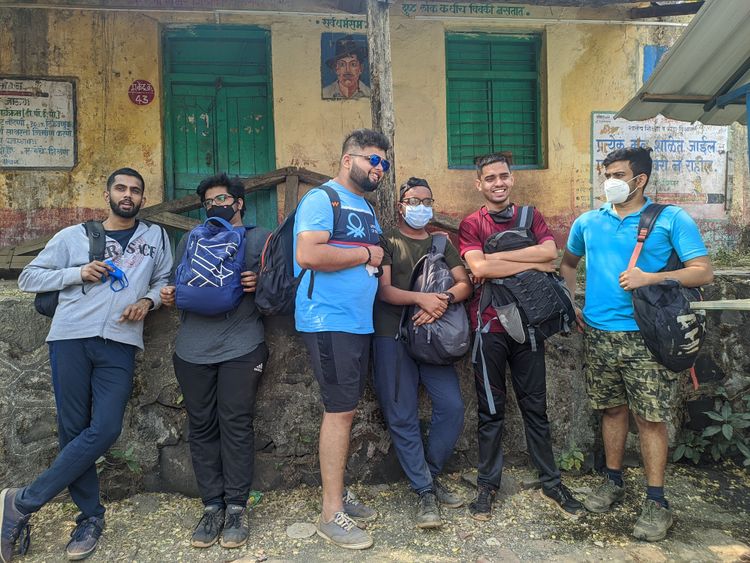Setting up OpenTelemetry in Django gUnicorn ASGI

I was working on integrating Signoz APM in one of the k8s clusters that we run for one of our products. We also added a helm chart repository for Signoz to facilitate terraform deployments. To send metrics to Signoz, we need to add OpenTelemetry to instrument and send it to a otel-consumer which comes out of the box with Signoz.
1) Start by adding these dependencies to your Django App.
opentelemetry-api==1.5.0
opentelemetry-exporter-otlp==1.5.0
opentelemetry-instrumentation==0.24b0
opentelemetry-instrumentation-asgi==0.24b0
opentelemetry-sdk==1.5.02) We add a new file named gunicorn.config.py.
OpenTelemetry has an issue of getting into a deadlock with fork process models.
To bypass this, we use the post fork hook to initialise a BatchSpanProcessor which would spawn a thread in the background to send spans to the telemetry backend.
# Copyright The OpenTelemetry Authors
#
# Licensed under the Apache License, Version 2.0 (the "License");
# you may not use this file except in compliance with the License.
# You may obtain a copy of the License at
#
# http://www.apache.org/licenses/LICENSE-2.0
#
# Unless required by applicable law or agreed to in writing, software
# distributed under the License is distributed on an "AS IS" BASIS,
# WITHOUT WARRANTIES OR CONDITIONS OF ANY KIND, either express or implied.
# See the License for the specific language governing permissions and
# limitations under the License.
from opentelemetry import trace
from opentelemetry.exporter.otlp.proto.grpc.trace_exporter import (
OTLPSpanExporter,
)
from opentelemetry.sdk.resources import Resource
from opentelemetry.sdk.trace import TracerProvider
from opentelemetry.sdk.trace.export import BatchSpanProcessor
bind = "0.0.0.0:5000"
# Sample Worker processes
workers = 4
worker_class = "uvicorn.workers.UvicornWorker"
def post_fork(server, worker):
server.log.info("Worker spawned (pid: %s)", worker.pid)
resource = Resource.create(attributes={"service.name": "emr-backend-service"})
trace.set_tracer_provider(TracerProvider(resource=resource))
# This uses insecure connection for the purpose of example. Please see the
# OTLP Exporter documentation for other options.
span_processor = BatchSpanProcessor(
OTLPSpanExporter(endpoint="http://otel-collector:4317", insecure=True)
)
trace.get_tracer_provider().add_span_processor(span_processor)3) We initialise the OpenTelemetryMiddleware in asgi config to enable automatic telemetry logging.
"""
ASGI config for EMR API project.
It exposes the ASGI callable as a module-level variable named ``application``.
For more information on this file, see
https://docs.djangoproject.com/en/dev/howto/deployment/asgi/
"""
import os
import sys
from pathlib import Path
from django.core.asgi import get_asgi_application
from opentelemetry.instrumentation.asgi import OpenTelemetryMiddleware
# This allows easy placement of apps within the interior
# emr_api directory.
ROOT_DIR = Path(__file__).resolve(strict=True).parent.parent
sys.path.append(str(ROOT_DIR / "emr_api"))
# If DJANGO_SETTINGS_MODULE is unset, default to the local settings
os.environ.setdefault("DJANGO_SETTINGS_MODULE", "config.settings.local")
# This application object is used by any ASGI server configured to use this file.
django_application = get_asgi_application()
django_application = OpenTelemetryMiddleware(django_application)
# Apply ASGI middleware here.
# from helloworld.asgi import HelloWorldApplication
# application = HelloWorldApplication(application)
# Import websocket application here, so apps from django_application are loaded first
from config.websocket import websocket_application # noqa isort:skip
async def application(scope, receive, send):
if scope["type"] == "http":
await django_application(scope, receive, send)
elif scope["type"] == "websocket":
await websocket_application(scope, receive, send)
else:
raise NotImplementedError(f"Unknown scope type {scope['type']}")
4) Finally, we modify the start command. Replace the OTEL_EXPORTER_OTLP_ENDPOINT value to the one depending on your infra/services are setup.
/usr/local/bin/gunicorn config.asgi --bind 0.0.0.0:5000 --chdir=/app -w 4 -k uvicorn.workers.UvicornWorkerDJANGO_SETTINGS_MODULE=config.settings.production OTEL_RESOURCE_ATTRIBUTES=service.name=emr-backend-service OTEL_EXPORTER_OTLP_ENDPOINT="http://otel-collector:4317" opentelemetry-instrument /usr/local/bin/gunicorn config.asgi -c config/gunicorn.config.py
This should start sending spans to your collector.
References:
Django gunicorn auto instrumentation · Issue #2038 · open-telemetry/opentelemetry-python (github.com)
Working With Fork Process Models — OpenTelemetry Python documentation (opentelemetry-python.readthedocs.io)


